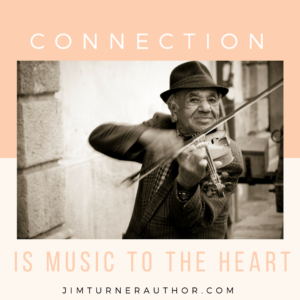 Relationships often bring troubles and drama we didn’t ask for. And who wants more drama in their life! The deeper we go into relationship, the more open and vulnerable we become to emotional forces. Emotional forces threaten our carefree numbness.
Relationships often bring troubles and drama we didn’t ask for. And who wants more drama in their life! The deeper we go into relationship, the more open and vulnerable we become to emotional forces. Emotional forces threaten our carefree numbness.
Disconnected men value predictability and stability in relationships. They enjoy a deceptive inner comfort. They become uncomfortable when emotional storms blow in and capsize their smooth sailing little boats. These storms put them into emergency mode. They struggle in relational waters. They’ll go to desperate measures to right the boat and settle back into fair weather sailing.
Since relational waters present such danger to them, they work very hard to avoid the currents of life that carry them to closeness. It’s much more comfortable to keep relationships at arms length. Gentleness, overt compassion, tender displays, ‘unnecessary’ sentiment, weddings, funerals, and many other intimate settings can carry them into dark passages they are afraid to navigate.
I remember feeling awkward and tense when I sensed that a setting or situation was becoming emotionally intimate. I couldn’t wait to get away. I would try to say the right thing even if I didn’t feel the right thing. I lacked the emotional instinct that would help me feel, so I tried to imagine what was appropriate to do or say in the moment. I’m sure I created a good bit of discomfort for others as I stumbled through.
[clickToTweet tweet=”I remember feeling awkward when I sensed a setting/situation was becoming emotionally intimate.” quote=”I remember feeling awkward and tense when I sensed that a setting or situation was becoming emotionally intimate. I couldn’t wait to get away.”]
So imagine having a guy like me with the responsibility to perform funerals, weddings, and hospital visits. I didn’t like doing any of these but as a pastor it was my duty. Just a little aside here: If DUTY or RESPONSIBILITY describe how you see these human opportunities for showing love then disconnection is lurking close by. Needless to say, I wasn’t a very good comforter or celebrator because I couldn’t feel the griefs or elations of others. They were outside my normal range of experience.
But that was then. Emotions and relationships are different for me now. I feel grief without being paralyzed or overwhelmed by it. I feel happiness for others without faking it. I sail toward, rather than away from fellow travelers, regardless their emotional state or relational demands.
How did things change for me? And why did I even want to change? I admit, being disconnected was easier for me. I avoided a lot of uncomfortable feelings and situations and stayed pretty happy. Let me address the second question first.
Why did I want to change? Why trade a life of inner calm and emotionless stability for the turmoil of relational connections? Two reasons: Because it’s human to relate. Because it’s divine to relate.
Failing to relate makes us less human and less healthy. People who have limited social interaction increase their risk factors for ill health by similar amounts to people who smoke or abuse alcohol. This linked article starts out by saying that humans are naturally social. Being relational is being human.
[clickToTweet tweet=”Failing to relate makes us less human and less healthy.” quote=”Failing to relate makes us less human and less healthy.”]
I realized that I was somewhere short of being fully human in my disconnected state. Being disconnected was robbing me of a lot of beauty. I was missing a big slice of life. I was disappointing those who relied on me for emotional input. I didn’t consider myself an unloving person, but began to realize that others did because I couldn’t feel what they felt. I started to realize that it was critical to those who loved me that I be able to connect with them. I didn’t want to remain outside and continue to hurt those I truly loved. Gradually I started overcoming my fear of connection in order to become more human.
Failing to relate also makes us less divine. Not that we are ever divine in the true sense of the the word. But, in that we reflect the character and image of God, we show others what God is like. Failing to be relational is failing to reflect one of the most important qualities of who God is. The Bible overflows with examples of God seeking to have a relationship with us. The very fact that we have a Bible – letters from the mind of God addressed directly to us – shows that God craves relationship.
It began to dawn on me that if I was avoiding intimate relationships and the emotional connections that come with them, I was avoiding being like God. And that’s not what He called me to do. He called me to reflect Him. I was being disobedient to the calling He saved me for. The New Testament teaches that Jesus suffered and died in order to make relationship with God possible. Running from relationships, both human and divine, was counter to God’s open hearted purpose for me.
Realizing these two truths made me want to change. Once I wanted to change, I had to learn how to change. I’ll share how that started to happen in the next post.
Until then, maybe it’s enough to wrestle with the question, ‘Am I disconnected?’ rather than get distracted with what’s next. If you are truly disconnected, you don’t do a lot of soul searching. Why do that when everything seems to be going great? I get it, but I’m begging you to consider something deeper and more lasting.
If you suspect you are disconnected, please take time now to think about the consequences to yourself and those you love. If you will learn to navigate unknown relational waters, your emotional boat will not be so easily capsized. You will be a better sailor and better able to lead those who depend on you for safe passage. You may not realize it, but those closest to you are desperate for you to make a start!
